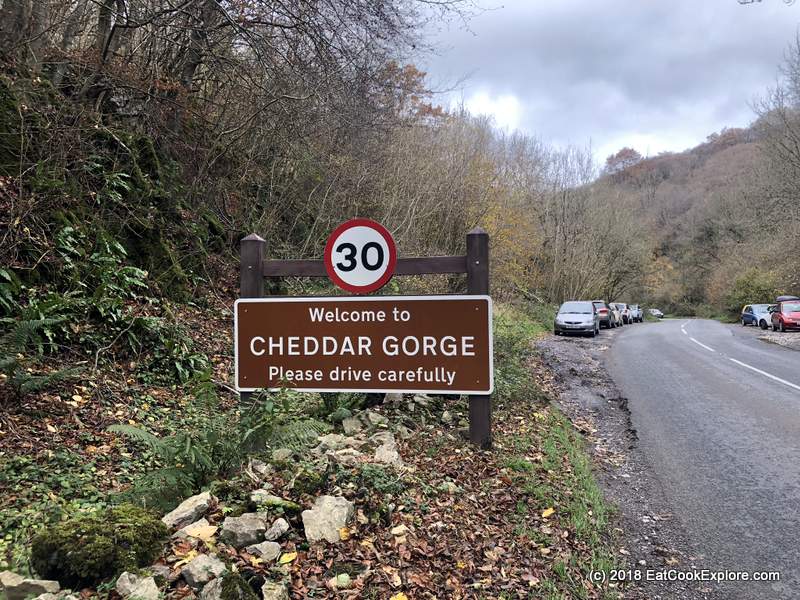
There’s something magical about a winding country road, a half-packed boot, and the promise of an exceptional meal at the end of it.
The UK is scattered with villages that don’t make the Instagram trending pages but serve up unforgettable flavours rooted in centuries of tradition. You won’t find neon signs or queues of influencers here, just honest food, made by passionate people.
Why Food is Always Worth the Detour
Asians know this really well. We are known to drive 2 hours for that perfect bowl of noodles. Here in the UK, cities command attention with their Michelin stars and buzzing restaurant scenes. But take the slower route,the one that meanders through country lanes, past grazing sheep and over ancient stone bridges,and you’ll discover delicious British food.
Hidden Foodie Gems Worth the Drive

Cartmel, Cumbria: Where Sticky Toffee Pudding Was Born
One stop on this culinary pilgrimage in Cartmel, nestled at the edge of the Lake District. This compact village with its medieval priory is perpetually perfumed with the scent of caramelised sugar, a fitting atmosphere for the birthplace of Britain’s most beloved dessert.
Book into L’Enclume, a two-Michelin-starred restaurant where chef Simon Rogan has pioneered a hyper-local approach to fine dining. The restaurant cultivates its own farm just outside the village, meaning your tasting menu truly travels mere miles from farm to plate.
Cheddar Gorge, Somerset: Beyond the Cheese

Cheddar gave its name to the world’s most popular cheese, but this historic village beneath the dramatic cliffs of Cheddar Gorge offers far more than dairy delights. The Cheddar Gorge Cheese Company still matures authentic Cheddar in the natural caves where the cheese was first created centuries ago, the constant temperature and humidity create conditions impossible to replicate elsewhereBeyond cheese, explore the village’s excellent cider producers, and don’t miss the local strawberry farms in season. After sampling, climb the 274 steps of Jacob’s Ladder for spectacular gorge views, or explore the prehistoric caves where Britain’s oldest complete skeleton, “Cheddar Man,” was discovered.
Bray, Berkshire: The Village with Three Michelin Stars
How does a village of barely 8,000 residents support not one but two three-Michelin-starred restaurants? Bray’s reputation as Britain’s most decorated culinary village rests on Heston Blumenthal’s The Fat Duck and the Roux family’s Waterside Inn. Both are bucket list restaurants that require deep pockets.
Even Bray’s “ordinary” establishments punch well above their weight. The Crown at Bray serves Sunday roasts that rival many London gastropubs and Heston’s Hind’s Head pub does elevated pub classics, and the village’s riverside location makes it perfect for a lazy afternoon.
Arbroath, Angus: Scotland’s Smoky Treasure

Make the journey north to Arbroath as part of a foodie road trip of Fife, a working harbour town on Scotland’s east coast, for one of Britain’s most distinctive culinary traditions. Arbroath Smokies, whole haddock hot-smoked over hardwood fires, have been made here since the 1800s and hold Protected Geographical Indication status, meaning authentic can only be produced within a five-mile radius of the town.
Stuart’s is among the last traditional smokehouses still operating, where the Spink family has been smoking fish for generations using methods virtually unchanged for over a century. Visit their small shop near the harbour and you’ll find fish still warm from the smokers out back.
Unlike kippers (which are cold-smoked and need cooking), Arbroath Smokies are ready to eat. Peel back the skin and the flesh inside is creamy, flaky, and intensely flavoured. Locals eat them simply with butter and oatcakes, but they’re also magnificent in cullen skink (Scotland’s creamy fish soup), flaked through scrambled eggs, or formed into pâté. Time your visit for mid-morning when the smokers are in full operation, Stuart’s staff are generous with their knowledge and often offer samples still warm from the fire.
Ludlow, Shropshire: The Market Town That Started a Movement
Though technically a small market town rather than a village, Ludlow’s impact on Britain’s food scene warrants inclusion. This medieval town beneath a Norman castle sparked the local food movement in the UK, boasting more Michelin stars per capita than anywhere outside London at its peak.
Ludlow’s twice-weekly markets showcase the agricultural wealth of the Welsh Marches. With produce like Herefordshire beef, Shropshire Blue cheese, wild venison, damson jam, and perry (pear cider). The September Food Festival transforms the entire town into an open-air food hall. Independent food producers line the medieval streets, while restaurants source ingredients from farms visible from their windows.
Planning Your Perfect Foodie Road Trip
Timing Your Journey
Seasons dramatically transform British village food. Spring brings wild garlic carpeting woodland floors, new season lamb from upland farms, and the first asparagus from Worcestershire and the Vale of Evesham. Summer explodes with strawberries, raspberries, samphire from coastal marshes, and mackerel fresh from morning boats.
Autumn is perhaps peak season for game birds, foraged mushrooms, whilst orchards groan with apples destined for cider and crumbles.
The Art of the Detour
Map your route using actual paper maps alongside your satnav, seeing the bigger picture helps you spot promising diversions. Build flexibility into each day. Some of Britain’s most memorable food experiences happen at places you stumble upon.
Follow your nose, literally. The scent of fresh bread or smoking fish is a reliable guide. Chat with locals at petrol stations or village stores; they’ll direct you to places Google never will.
Essential Pre-Trip Checks
Before embarking on a multi-day food safari through rural Britain, make sure that your vehicle is road-trip ready. Country lanes are unforgiving, narrow, winding, often potholed and far from breakdown services. Check tyre pressure and tread, test all lights, top up fluids, and verify your spare tyre is properly inflated.
It’s worth doing a quick MOT history check before departure, this free service reveals any recurring issues with your vehicle that might rear their head miles from civilisation. Nothing derails a carefully planned culinary adventure quite like a breakdown on a single-track Somerset lane with no mobile signal.
Markets, Farm Shops & Impromptu Tastings
Village markets remain the social and culinary heartbeat of rural Britain and we’ve got loads. Arrive early on market day when farmers and producers are setting up. You’ll witness locals catching up on gossip while buying their week’s supply of artisan cheese, homemade chutney and farmhouse cider. You’ll get to sample experimental cheese varieties, taste honey varieties from different hedgerow flowers or compare apple juices from heritage varieties with names like Ashmead’s Kernel and Egremont Russet.
Good farm shops are a joy. You’ll get really good local produce straight from the farm nearby. Don’t just buy and leave, ask questions. Where was this beef raised? How is the jam made? Why are those eggs blue? Producers love sharing their knowledge, and you’ll gain insights no cookbook can provide.
Stay and Explore
Don’t treat these villages as drive-through destinations. Book a night or two in a family-run B&B that offers breakfast showcasing everything from the neighbouring farms. Many hosts are filled with local knowledge and stories, directing you to the smokehouse hidden down an unmarked lane or the woman who makes goat cheese in her cottage kitchen.
In between, walk the footpaths that crisscross the countryside, hike coastal paths where you can spot oystercatchers, and visit the 12th-century church with its wonky tower. Food tastes better when you’ve earned it with a long walk or a good conversation,
These foodie villages don’t broadcast their existence. But if you approach with curiosity, respect, and appetite, they’ll reveal what you need to know about British food, rooted in place, shaped by season, and made with pride. Pack light, drive slowly, leave your schedule loose, and come very, very hungry.





